Interview: Cady Huffman And Mary Ann McSweeney Talk About Their New Show IT WAS A VERY GOOD YEAR: SONGS INSPIRED BY A PANDEMIC at The Green Room 42
Cady Huffman and Mary Ann McSweeney Play The Green Room 42 February 22
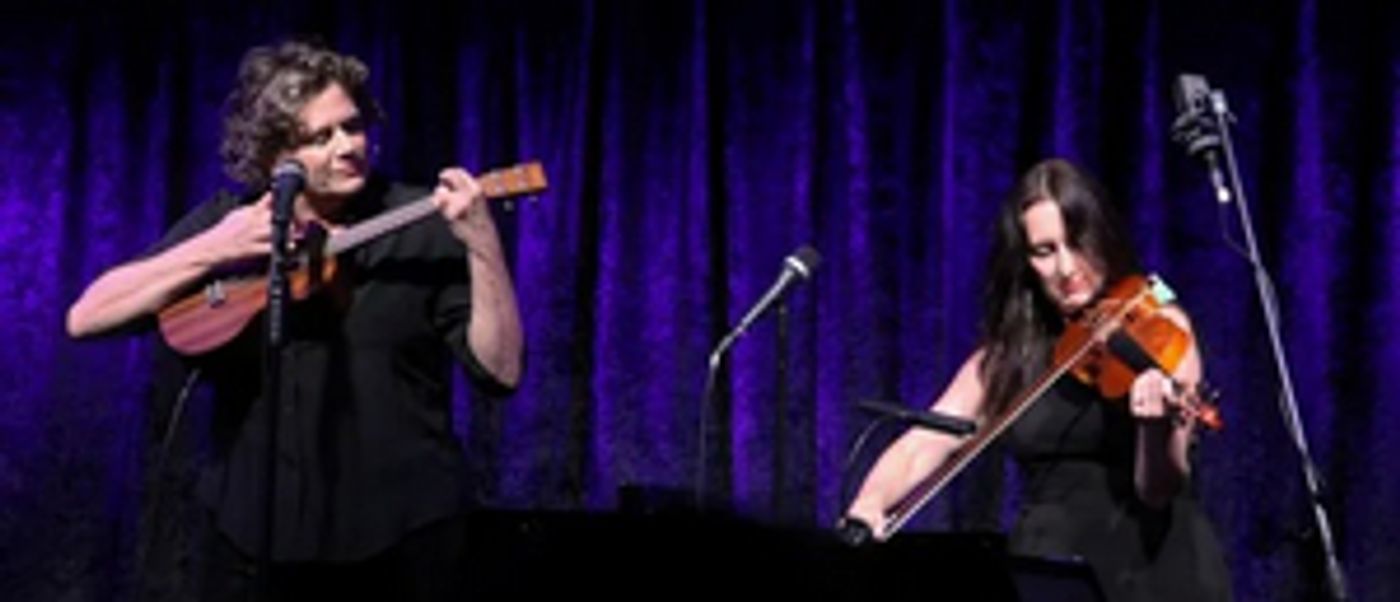
As the pandemic nears its much overdue endemic end, artists are coming out of the woodwork to sum up the past 24 months with their personal stories of survival and thriving. Last September, Tony award winner Cady Huffman and respected jazz bassist Mary Ann McSweeney presented such an evening at Birdland. With only the two of themselves, they put together an eclectic evening of jazz-flavored tunes with Ms. McSweeney on bass and Ms. Huffman on vocals entitled IT WAS A VERY GOOD YEAR: SONGS INSPIRED BY A PANDEMIC. This coming Tuesday, February 22, Huffman and McSweeney will present a new and improved version of the show at The Green Room 42, with a few surprises for those who caught the show before.
The two old friends bring years of combined experience to the endeavor. Cady Huffman won the Tony for her portrayal of Ulla the night The Producers won every conceivable award. She was previously nominated for her role as Ziegfeld's Favorite in The Will Rogers Follies. She has also appeared on Broadway in La Cage aux Folles, Big Deal, Steel Pier, and The Nance. She is familiar to television audiences from her appearances on Mad About You, Curb Your Enthusiasm, Frasier, Law & Order, Submissions Only, The Good Wife, Blue Bloods, and her two years on One Life to Live.
Mary Ann McSweeney has worked with jazz legends Dizzy Gillespie, Joanne Brackeen, Lee Konitz, Gil Goldstein, and Bucky Pizzarelli. At the age of 16, she was selected to play at the Monterrey Jazz Festival with the All-Star Band fronted by Thad Jones and Mel Lewis. She is a respected composer and orchestrator. Her compositions can be heard on Urban Fado, which is available on all streaming platforms. She has played in the pit of over 40 Broadway shows, including most recently, Girl from the North Country.
It was my great pleasure to sit down on Zoom this week with Cady and Mary Ann to talk about their upcoming show and their vibrant careers. This interview is lightly edited for length and clarity.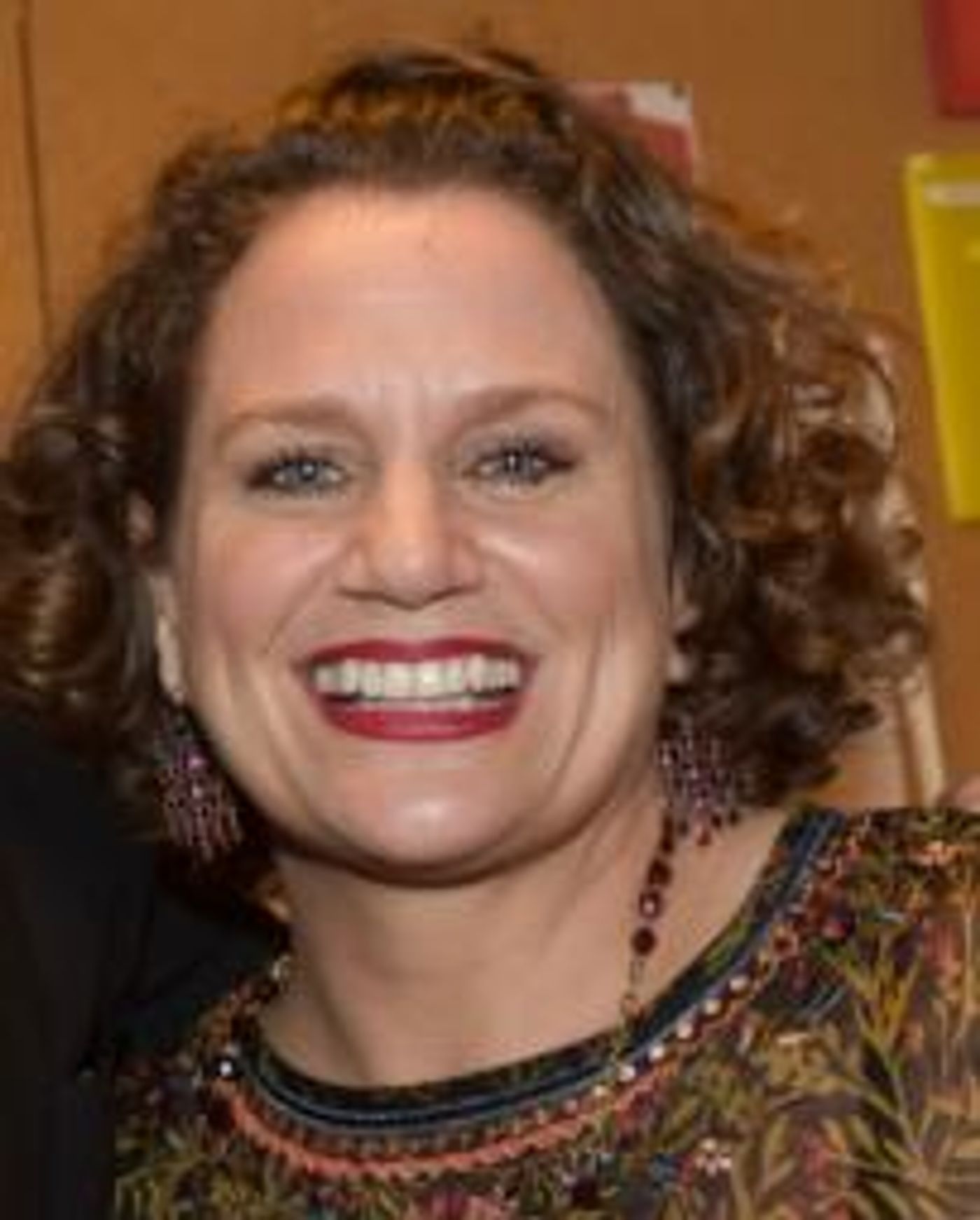
Welcome to Broadway World.com. and thank you. Before we dive into the deep questions (there are no deep questions by the way) tell me what it is that fans can expect from this new show.
Well, I'd say we're super excited for one thing. This came about because Mary Ann and I and our friend Eric have committed during the pandemic to meet once a week, talk things through and check in on each other. And we've played together before. So she said, "Hey, do you want to try to do a show with bass and voice?" And I said, sure because we have no idea when we would be able to perform anything.
Mary Ann McSweeney
We had to do something.
You know, there wasn't a lot going on. And it's not so good for artists to be sitting around, not doing things.
Mary Ann McSweeney
Just thinking about that next shot of tequila.
The good thing about the pandemic, every morning I've played my ukulele. So I've become a little bit better at my ukulele. But getting into rehearsals, my chops are gone.
Mary Ann McSweeney
I lost my callouses during the pandemic because I'm a bass player, right?
So it was really interesting getting back into it. We thought what is a theme? What are the great bass lines? And what has the pandemic been for us? So what music reflects how this pandemic has treated us? We've kept pretty close to that theory.
Mary Ann McSweeney
Yep.
We really, really searched for great bass lines. So it's her fault.
Mary Ann McSweeney
I don't just ask random people to do something like this, but I knew Cady could do it because she's quite the musician. She's not just a singer and an actor. She's a real musician. She understands about arranging. And without the piano player in there you have to be tight. And I knew she could do stuff like that.
How long have you two been collaborating together? I know you're both California gals. Did you meet there?
No, no. We both left California as soon as we possibly could. As a teenager, I was out.
Mary Ann McSweeney
Well, it took me a minute. I ended up in LA and then I finally came to New York. I was in my twenties.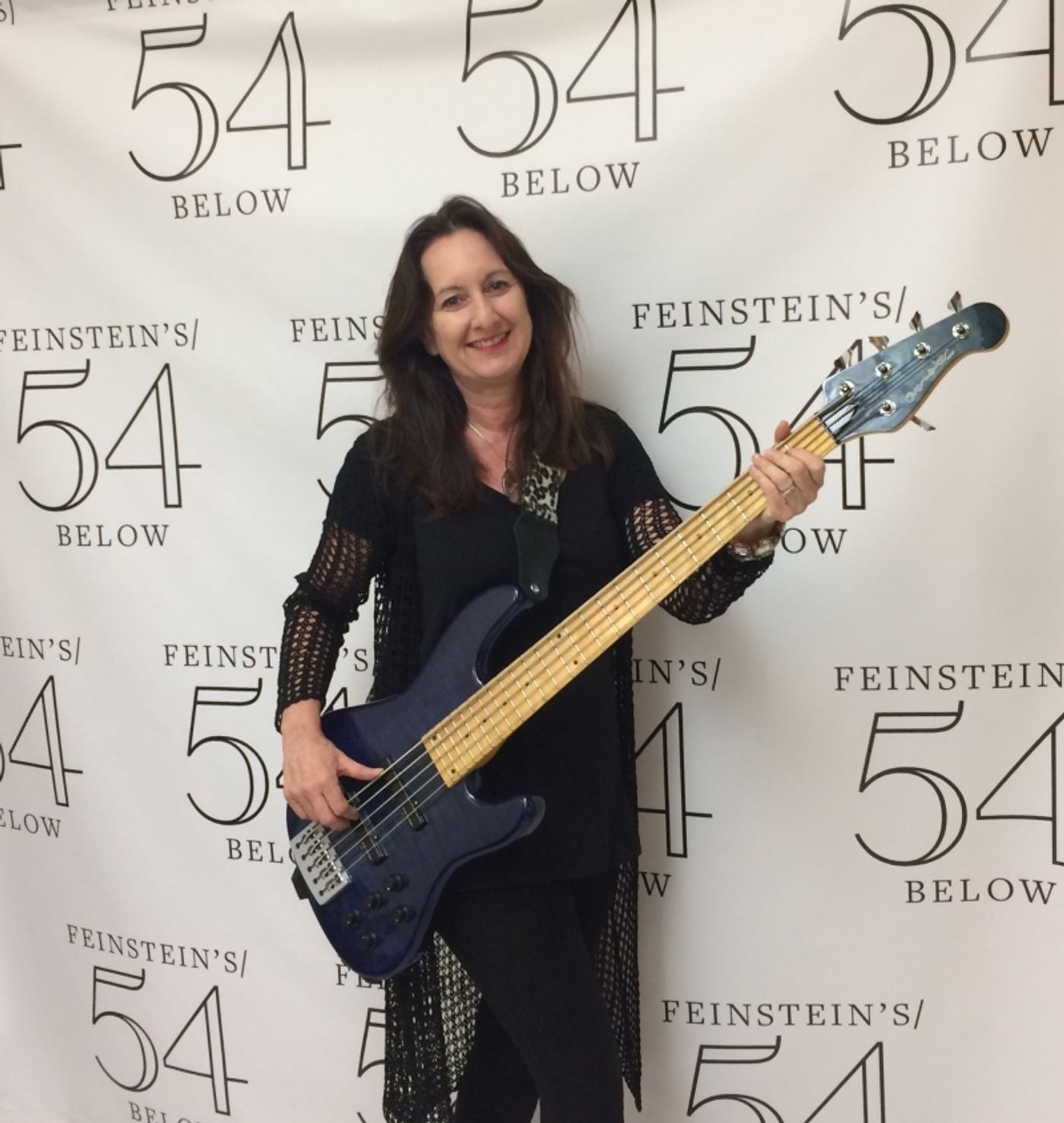
I guess we met through Lea DeLaria. You came to show at the Public, right? Or Joe's Pub.
Mary Ann McSweeney
Didn't you do a benefit maybe?
Maybe. I asked you to arrange something.
Mary Ann McSweeney
Oh my God, that was hilarious.
Because I also played euphonium. So I asked her, can you write me a solo for the baritone? And she said, sure. And she brought it in and she had written it for a baritone saxophone, which is like (demonstrates some very fast jazz riffs) and I'm like, "Well, no."
Mary Ann McSweeney
So it was 2004. But we probably met before then.
How about that for a concise answer? The answer being, we don't know.
I want to talk a little bit about jazz because you....
I'm a jazz cat.
You ARE a jazz cat. And of course, Mary Ann, come on. When was it that you discovered jazz and what was it that drew you to the genre?
Mary Ann McSweeney
I was a classical pianist and violinist and my band director, when I was 13, brought me to the concert jazz festival in Northern California. And I heard this band. I see these guys on stage, laughing, yelling at each other. Then we go backstage and everybody's jolly. And the bass player was Ray Brown, the most famous in the world. And I thought I wanna do what he's doing. And how weird is that for a little girl, from a beach town to look at this African American dude playing the bass and say that's what I want to do? Not thinking that this would be my life. But it wasn't really a girl's instrument. So that was a struggle with my parents.

For me, I really think it was Mr. Rogers.
Oh wow. That's amazing.
All of his incidental music was jazz by a famous jazz cat whose name I'm not gonna remember right now. But growing up in a slightly chaotic home, Mr. Rogers was sort of my respite. He was where I went for some quiet and kindness, some calmness. I listen to jazz, to calm myself. I hear from other people, "Oh, it's too chaotic. It's too, blah, blah, blah." I'm like "Honey, then you don't know chaos." Then I listened to people like Ella Fitzgerald, Peggy Lee, and Nat King Cole. And I'd sing along with them, really having no understanding as a child that that was jazz. I just thought they were singers. I prefer to listen to jazz in the car and other places, but, you know, my career went in the Broadway direction and everybody thought the only thing I did was belt. My childhood was spent studying opera and ballet. Hearing Mary Ann talk about jazz helps me key into it. That it is joyful. That there is no wrong chord. It's freedom.
Mary Ann McSweeney
She hears the harmonies and stuff. That's why we can do this project. This is not an easy project.
I'm fascinated that anybody finds jazz chaotic. It seems to me that there's nothing more orderly. Jazz seems to be nothing, but structure, you know?
Well, it's a structure within freedom. You really listen to each other. You really hear each other, no matter how big the band is. And you respond to something you weren't expecting.
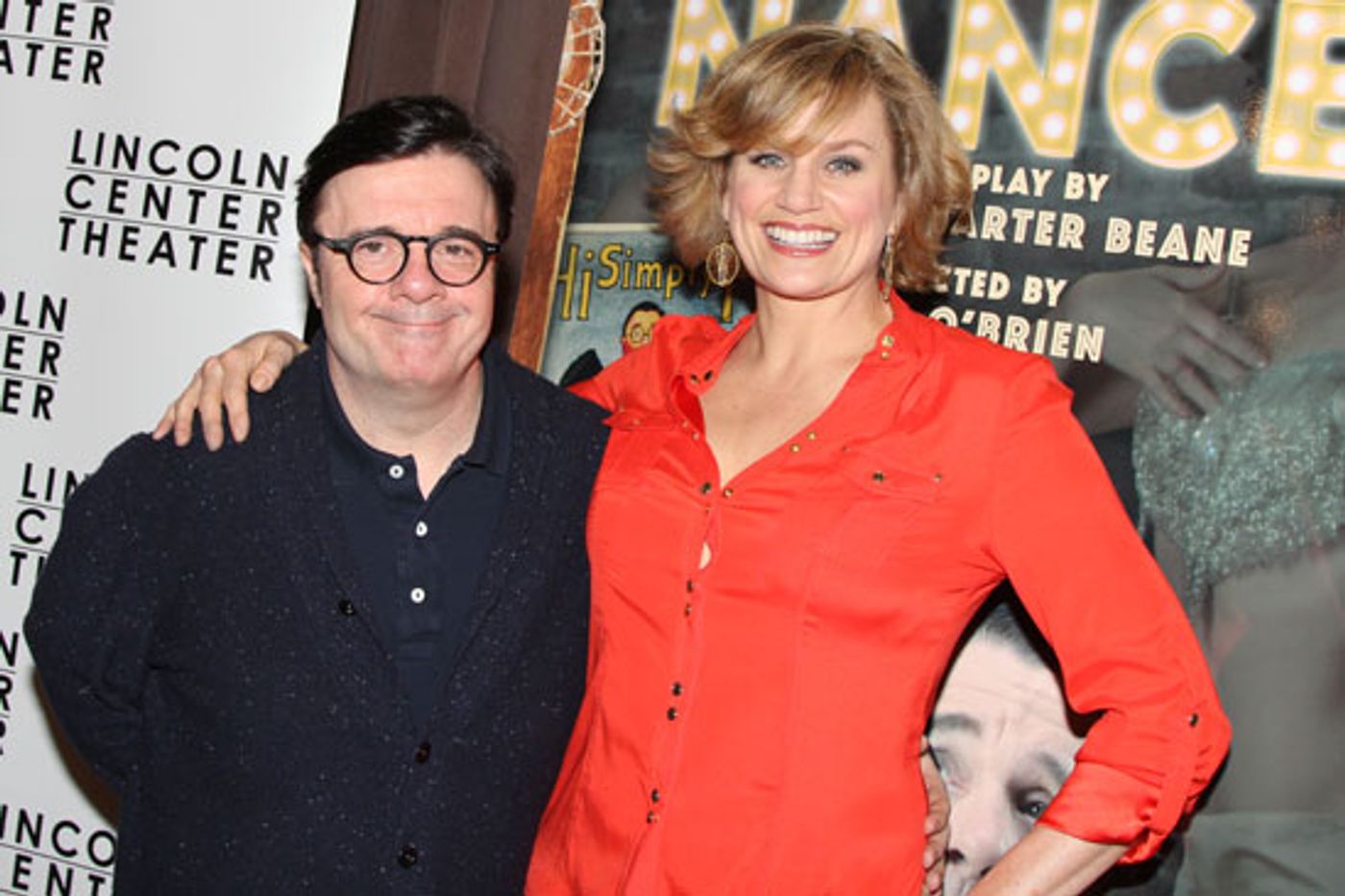
I want to talk about some of the people that you have worked with. Mary Ann, you've worked with some of the jazz greats, including Dizzy Gillespie. Tell me who was the one who most surprised you?
Mary Ann McSweeney
I think Dizzy Gillespie. I was in my twenties. I was about to do this gig with him for a week with a band that I was in in the 80s, this all-female band called The Jazz Birds. We ended up being his backup band on a cruise ship. It wasn't like the cruise ship band. We were hired specifically for Dizzy. I couldn't believe how sweet he was. We would have our meals together. He didn't drink, but we would go to the bar together and we ordered these crazy drinks with umbrellas, and he would go to the disco with us. He was 80. He was an educator. He was actually giving our trumpet player lessons during the week. He was very into giving back. My other teacher, Ray Brown didn't have to teach, but he did. And that's a huge thing. Pass it on, pass it on. So that's what Dizzy did. That was surprising. I'm like this guy, he invented bee-bop, and there he is, you know, hanging out. We had sets with other people. There was one night we saw this little face coming through the curtain. It was Dizzy, "Hey, can I sit in with you guys?"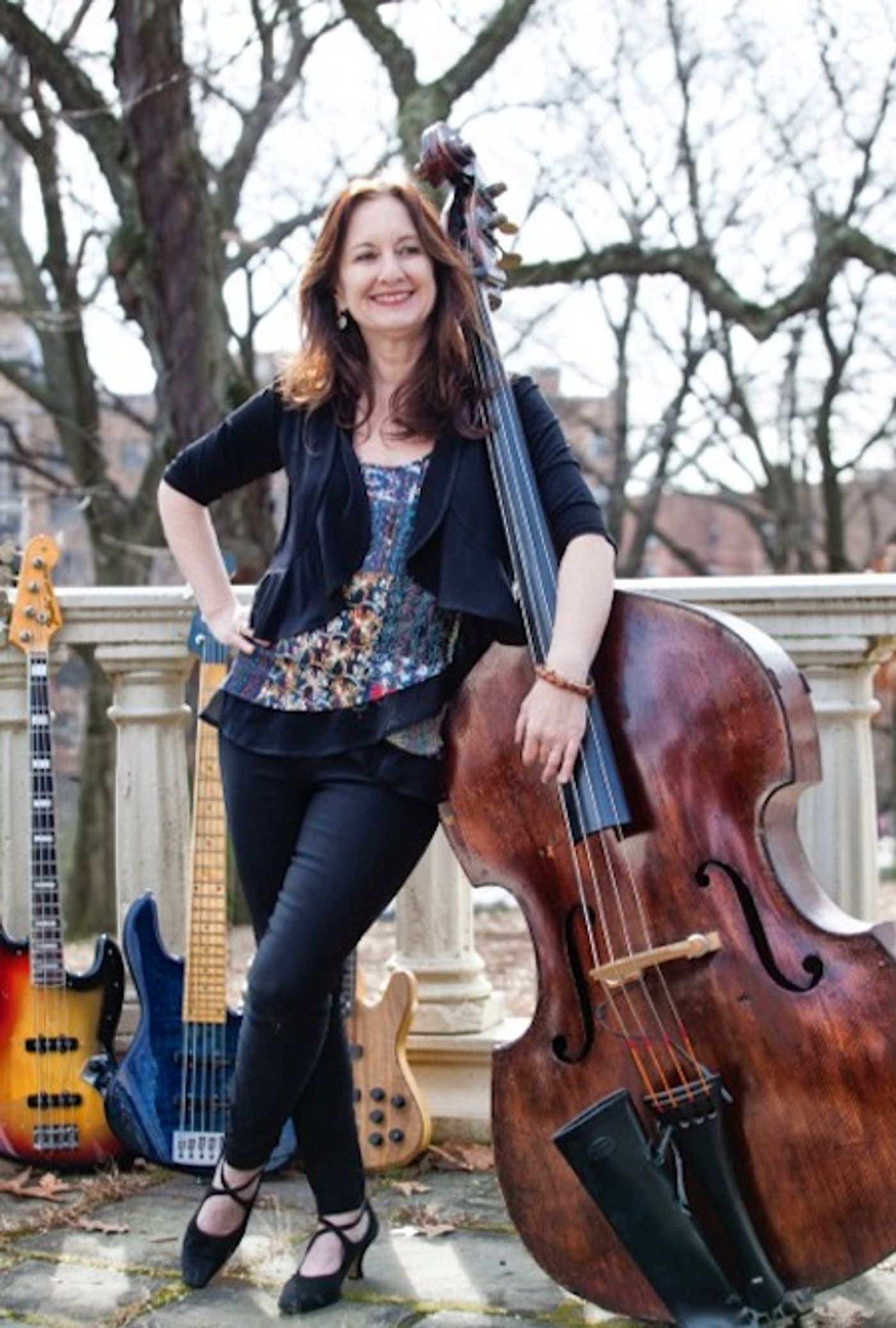
Amazing. Cady, I want to talk a little bit about Cy Coleman, who was not only one of the great Broadway composers but was also, I think one of the legendary jazzmen of all time.
Absolutely.
Do you have a Cy Coleman story?
I have a lot of Cy Coleman stories. Cy really influenced my instrument, my vocal instrument. I was singing Broadway for him and I was doing "Will-A-Mania.". It seemed like every day he was bumping it up half a step, it was going higher and higher and higher. I was 25 years old in my first starring role on Broadway. And I was like, what is he doing? He got me into that stratospheric place where a soprano does sing. I was studying to be a coloratura as a child so I have those very high notes and he heard it in my belt. He knew before I did that I could do that. He absolutely found the sweet spot in my voice, which I did not know was there. The way he approached even Broadway was as a jazzman. I mean, he was really specific. He loved his notes, he loved his melodies and he was very strict about all of that. But he also had so much diversity in the way he responded to a singer or chorus. I was naive that had any aptitude. I just didn't know and he was the first person to really promote my vocal instrument. You know what I do remember are his hands. They were real chunky. They were all thick and real agile. He had those crazy hands like Vladimir Horowitz or somebody where they just don't seem attached.
Anytime I interview women in show business who are sort of doing it for themselves, I like to ask how do you feel, things have changed in show business over the time that you have been working? How are things different now in 2022 than they were when you began?
I think that's a more interesting thing to ask Mary Ann because you're in such a solidly male environment.
True. Jazz is such a boy's club...and playing the bass.
Mary Ann McSweeney
Yeah. I don't wanna go on too much about this, but I'll say that currently there is a pretty big change during this pandemic to get more women to mentor women and to mentor women of color in jazz and in the Broadway world. You know, I've been in pits. I've played about 40 shows or something. But there were never any women in the rhythm section. Most of the time it was just me and the guys. Now there's a change and people are being a little bit more conscious about that. But it's also who's hiring now. There are more women in positions to hire a more diverse community. So that's my overall answer, but we might have to have a cup of coffee on the other side to talk about what it was like before.
I want to.
Mary Ann McSweeney
There were some dark times weren't there? There are many more things in place now where you will get in trouble if you say or do the wrong things. Back in the day, not so much.
Of course.
Mary Ann McSweeney
You know, there's no real HR department in jazz, but there is more of a consciousness about how to treat others and to be more aware of what you're saying.
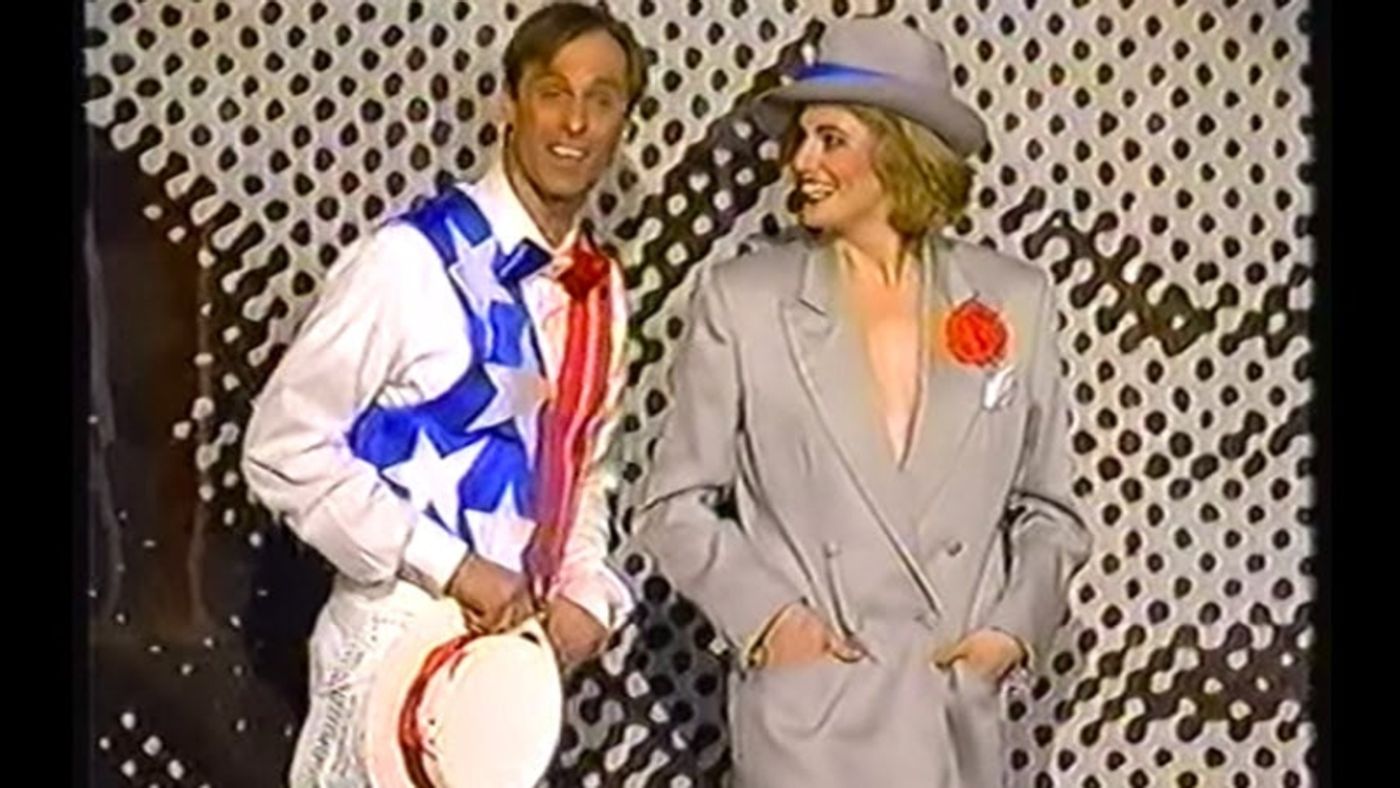 And this pandemic has a lot to do with it. A lot of social stuff came down during this pandemic. I kind of feel like, tell me if you feel it too, it's not just that person who is saying something to me that is offensive or thoughtless. It's that more people are willing to say, "Dude, that's not cool. . You gotta go. Dude, no." There are fewer people just not taking any responsibility and that's what's changed. And the thing that's changed for myself is realizing it's not enough to be an ally. You have to be an advocate. I directed something right before the pandemic and a young woman was being harassed by one of our fellow performers and I had to take care of it. You just can't do that. So I think there's a shift in the environment more than in the individual.
And this pandemic has a lot to do with it. A lot of social stuff came down during this pandemic. I kind of feel like, tell me if you feel it too, it's not just that person who is saying something to me that is offensive or thoughtless. It's that more people are willing to say, "Dude, that's not cool. . You gotta go. Dude, no." There are fewer people just not taking any responsibility and that's what's changed. And the thing that's changed for myself is realizing it's not enough to be an ally. You have to be an advocate. I directed something right before the pandemic and a young woman was being harassed by one of our fellow performers and I had to take care of it. You just can't do that. So I think there's a shift in the environment more than in the individual.
Mary Ann McSweeney
I agree with that. However, there's still work to be done. When I look at who's booked at a jazz festival, there are not that many women instrumental composer leaders. There's a female vocalist that will lead the band. It's changing, but that's still a thing. And there is the old-school talk. You do still hear a little bit.
Absolutely. It's not gone.
Mary Ann McSweeney
I did also stand up for somebody who's a lot younger female and there was a situation. It's easy for me to do that now. As a young woman, not so much. We didn't have anybody.
I learned very early how to become a hostess. You know, we're gonna just smooth out that situation and move on. You know you learned how to be a hostess...
Mary Ann McSweeney
If you wanted work.
Yeah. If you wanted to work. There was much too much deciding whether you wanted to stand up for yourself or work. As a young dancer, I walked off more than one job. We were all making music videos back then for $10 for literally 24 hours straight of work. If I was getting the upper tier, which was maybe a hundred dollars and somebody else was making 75 and they were feeling taken advantage of, I said, unless everybody makes a hundred dollars, I'm not gonna come back. And literally, I was the only person that didn't go back. It didn't bother me. I didn't wanna be on that gig. That gig did not serve my soul. But it was a big eye-opener. There's a lot of work to be done.
Mary Ann McSweeney
There's so much fear as an artist. How will I pay my rent? How will I do this? I want to be on TV.
Right.
And people know that as performers you're willing to do whatever you need to do.
I suppose the fact that I'm even asking that question demonstrates that there's still a lot of work to be done.
Yeah. I got asked in an interview, would it would be a better world if women were in charge. And I said, well, I'm not gonna get sucked in by that question because I did not grow up in an environment that told me I was a lesser human. You know, my brothers told me I was equal to them by the way they beat me up just as much as they beat up others. You still are a sibling. You're still vying for position. But I was not considered lesser than. That's the environment I grew up in.
I want to thank you both. I guess there actually were deep questions. Or at least deep answers. I'm very excited about your show. It sounds amazingly innovative and I can't wait to see how you've put it all together. I have one light wrap-up question and it's for you, Cady. I know everybody who auditions for Mel Brooks has to tell him a joke. Would you share with us what your joke was?
Well, here's the thing. I didn't have to have to audition for Mr. Brooks.
Well, touch you.
I know, everybody else has that story. I was asked to do the very first reading of The Producers back in April 2000. So I had the advantage of rehearsing and doing this reading. And after the reading, Mel said "Kid, when it goes, you're in!" So I didn't have to audition in the traditional sense. My big public reading was my audition.
Well, clearly he knew what he was doing. This has been lovely. I'm so glad to meet both of you and I can't wait to see your show.
Thank you, Ricky, so much.
Mary Ann McSweeney
Thank you.
IT WAS A VERY GOOD YEAR: SONGS INSPIRED BY A PANDEMIC will be onstage at the Green Room 42 February 22 at 7 PM. For tickets and information visit greenfignyc.com. To learn more about Cady Huffman, follow her @CadyHuffman on Twitter or @cadyhuffman on Instagram. For more about Mary Ann McSweeney, go to her website, maryannmcsweeney.com or follow her @maryannmcsweeney on Instagram.
Videos

